Letter of Recommendation: The Collected Works of Sylvia Plath
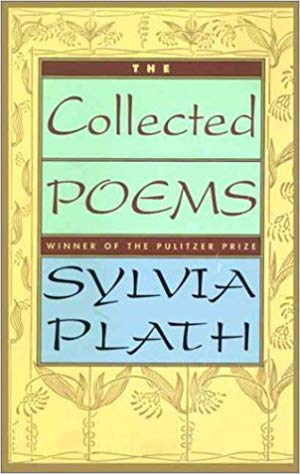
The Collected Poems of Sylvia Plath can be found in the nonfiction section of the school library.
I have been thinking recently about the whole meaning-of-life thing.
The meaning of life. It is a vague and overly abstract concept, but I have always figured that life was much more comforting when you had some purpose for living it. Besides, I figured out my standing answer to it years ago: personal happiness. It is simple enough, and seems to be sufficiently logically sound; short of interfering with the well-being of others, what is the point of any action if it does not, at some point or another, increase your happiness in life? This, therefore, has been my underlying philosophy for life decisions for a good chunk of the time I have been alive.
However, as I develop into a somewhat more capable thinker (the personal happiness idea arose around middle school), I cannot shake the haunting feeling that this philosophy is not enough.
My doubts formally began when I, going along with a friend’s newfound obsession with Oscar Wilde, tried temporarily adopting an aestheticism based outlook. The whole idea was tantalizing from a fine arts perspective, and seemed to fit with my original philosophy; perhaps the meaning of life is, in fact, to pursue beauty as a means of seeking contentment.
However, as appealing as it was, I could not reconcile this with one of my core, more prominent, personality traits—that of Disdain of Superficiality. Fundamentally I am irked by anything and everything that forsakes authenticity and instead presents a facade in order to maintain a pleasant appearance. This clashes with the aesthetic ideal; while some beautiful things are genuinely so, the sole pursuit of beauty neglects the importance of authenticity.
The same principle applies to the pursuit of individual happiness, as happiness can be superficial too. Thus, my philosophy seemed to fall short..
My solution to this dilemma manifested itself in the form of poetry. I have always had an appreciation for the art—I wrote an overly simplistic poem about light for a competition in the eighth grade and submitted a free verse poem to the school literary magazine in the ninth. I read extensive amounts of Poe when I was younger, and was raised on a few of the poems of Yeats by my mother the ex-English teacher. This year, my involvement with the art has grown and expanded; we have worked with British Romanticism in Advanced Placement Literature and Composition, and as I have helped found and attended Poetry Club (sidenote: Poetry Club is awesome, meets after school in W108, and sometimes provides food. Everyone should come), my involvement with the study has been much deeper.
However, as much as I love poetry, I have had difficulty latching onto any one poet or another and truly immersing myself in their works, existing more as flotsam in the poetic realm, drifting from one short poem to another.
This changed when, a couple of weeks ago, we were assigned in AP Lit a poetry scavenger hunt. Our task was to find 12 different poems exhibiting different elements of the genre, and then read one aloud to the class.
I tried my very best to take this assignment as an opportunity to explore poetry a little more, and to gain a wider literacy in the subject. As one does, I began in the school library (home to a rather comprehensive collection of poetry), and combined eight poetry collections from various authors with two of my own.
I explored the works of Pablo Neruda and of Langston Hughes, Whitman and Ginsberg, investigating their styles and absorbing the beauty of their writing.
One book in particular stuck with me. As I read over the Complete Works of Sylvia Plath, I was struck by the language of it, by the sheer elegance of the style as it was used to describe everyday subjects—ouija boards and surgeries and public parks. That Friday, I stood before my class and recited “In Midas’s Country,” soothed by its pleasant depictions.
Sylvia Plath was far from personally happy. In fact, she exists almost as the epitome of anti-happiness—she committed suicide in 1963 by sticking her head in an oven. When I told my friends of a newfound appreciation for her work, they laughed and teased me for how edgy I was for it. Regardless, Plath’s writing exudes brilliance, using vivid descriptions that fill the soul. Her poems linger on the tongue and leave the reader pensive and thoughtful. Her subjects and language are more modernistic and approachable; they feel particularly relevant to the world we live in.
Plath’s poetry may not be cheerful, but it presents a rounded outlook on the world that is nonetheless beautiful, providing a more deep and meaningful view. Perhaps this is closer to the true meaning of life: not to be always happy, but to think and feel deeply. A pursuit of things that make one more meaningfully satiated, as can only be achieved through art or nature or poetry or other authentically beautiful things, ultimately may lead to a more completely genuine contentment.
Of course, I am seventeen years old. I spend my life seeking not some higher meaning, but passable grades and hopefully an eventual diploma. I am no philosopher; yet, the pursuit of purpose in life is applicable to every single person on this planet and achievable, in some form, to the same group. As I move shortly into adulthood, I believe I will do so with arts and poetry, and, in particular, the poems of Silvia Plath.
Your donation will support the student journalists of Fossil Ridge High School. Your contribution will allow us to purchase equipment and cover our annual website hosting costs.
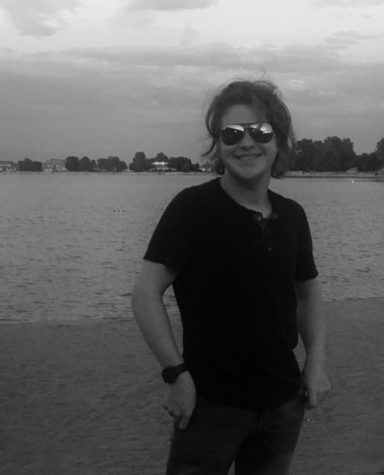
Liam H. Flake is a dreamer, thinker, and intellectual. He wears leather jackets, plays acoustic guitar (among other things), and enjoys reading, old cameras, and visiting natural areas.
Flake’s passion is journalism: it is what he plans to pursue, in one way or another, as a career. Academically,...
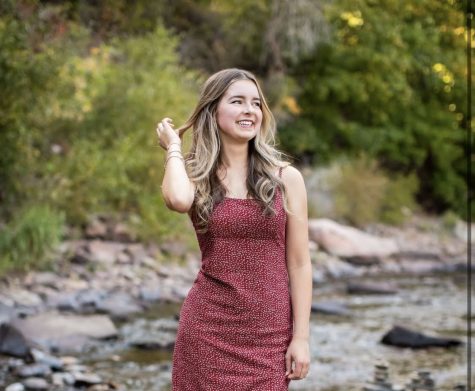
Caroline Sears is thrilled to be Editor in Chief along with Melissa May this year. The pair hopes to improve the paper in every way, but they are focusing on ensuring the stories are meaningful and that the paper’s staff is connected.
She is passionate about theatre and her favorite subject is English....




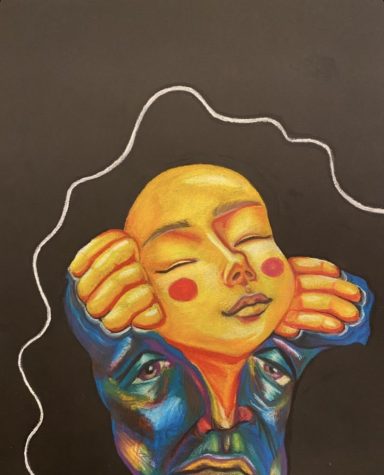

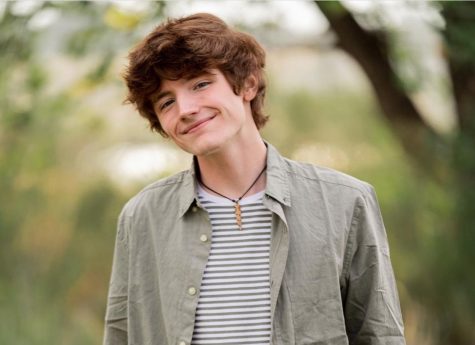






Oswald • Feb 26, 2020 at 2:11 pm
And my Grinch heart just grew three sizes…. Nicely done!